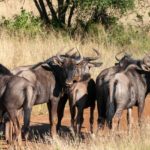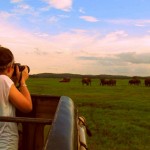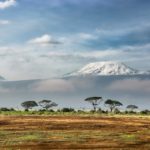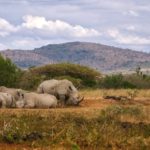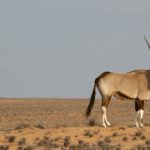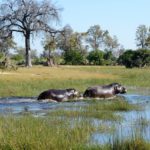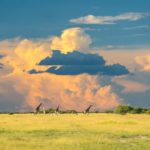3 Essential Safari Tips
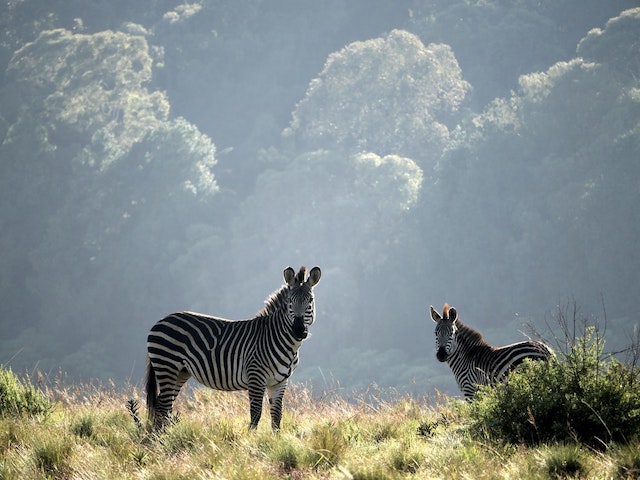
When I first traveled to Africa in 2009 as a student in a semester exchange program, I could hardly believe the reaction of my family and friends. Many thought I would be living in a hut or fighting lions in the bush. Even the clinic where I went to get my vaccines didn’t know that South Africa was a country. They asked me repeatedly “Where are you going in Africa?” I gently had to break the news that I would be going to the country of South Africa, where I would study at a world-renowned university. I wouldn’t even see a lion.
From a western perspective, Africa often conjures up the image of the final frontier–excitement, adventure, incredible biodiversity, and a little danger. Just imagine watching the great migration across the plains of the Serengeti, and returning home and telling your friends and family that you’ve climbed Mount Kilimanjaro and defied all odds. Imagine sharing facts like, “Did you know that African hippos are the most dangerous large animal in the world?” or that “a group of rhinos is called a crash?”
I gently had to break the news that I would be going to the country of South Africa, where I would study at a world-renowned university. I wouldn’t even see a lion.
After several return visits to different countries within Africa, I have developed a deep connection to the continent, its mysteries, its magic, and its controversies. Based in Malawi, I now work in the African tourism industry with the goal of helping to alleviate some misconceptions about Africa. The vast majority of travelers we work with at Malawian Style arrive to go on safari–to have these adventurous experiences and to bring home these epic stories to their friends at home.
Unfortunately, wild Africa doesn’t always have the idyllic Lion King image many of us imagine. However, as the world changes, so does tourism. Here are my safari tips–three basic things to know before traveling to view African wildlife in the “wild.”
1. Legal game hunting has helped preserve South African species diversity.
The hunting of large game is a culturally accepted way of life in southern Africa. In fact, 11 sub-Saharan countries allow for legal game hunts. It’s difficult to separate hunting and conservation in the African context. Historically this is one of the reasons that conservation of African species has been so successful in southern Africa. There is very little government funding for environmental conservation in South Africa. Therefore, most of the land is privately owned. Most safari reserves are privately owned as well and reserve owners have to find a way of funding conservation and paying land tax. A male lion trophy hunt on a reserve can sell for as much as $20,000 USD. Therefore, hunting can be very lucrative and an easy solution to these common funding problems
In essence, we can all thank the hunting industry for saving our beloved lions, cheetahs and rare antelope species. There is a massive debate about the industry in its modern form and how much money from wildlife hunting permits is actually going back into conservation. Regardless of my personal views on killing another creature (which I could never fathom), the fact is that safari tourism and game hunting have helped preserve Southern African species diversity.
2. Lion cubs are widely exploited.
There is a massive exploitative industry in southern Africa involving lions. Companies breed cubs for tourism purposes–for cuddly photos and to walk with the adult lions in an “open” environment. They also commonly use volunteers to “rehabilitate” the lion cubs or adults.
Once they reach maturity, these lions are too expensive to feed and to care for, so they are sold to a hunting reserve. The lions are often baited for the hunt, tracked by guides and raised by humans. Another common practice is for these lions to be sold to Asia for rare meat consumption, while the bones are used for medicinal purposes.
Engage, and form your own educated opinion–and steer clear of organizations promoting anything to do with lion cubs or lion walking for the time being.
3. Join the fight again rhino poaching.
Rhino poaching is a severe and very real problem on the continent. This doesn’t present any physical harm to a traveler–but you should be aware of the issue.
Rhinos are poached for their extremely valuable horn. Their horn is brutally hacked off and sold to Asian countries for medicinal purposes and sometimes used as a party drug. Rhino horn is made of keratin, the same material as our own fingernails. Although there is no real benefit for human consumption, this horn is sold for $30,000 per pound–more than the street price of cocaine. This has led to disastrous effects for Southern African rhino populations in the past 10 years.
There are several prevention methods in use including drones, dehorning rhinos and transporting rhinos to surrounding African nations. Rhino Revolution based in Hoedspruit, South Africa is doing a wonderful awareness campaign against poaching.
Henry David Thoreau once said, “Wildness is the preservation of our world.” So, as you prepare for your trip to southern Africa, think about how you can help to preserve this wild. And know that this magnificent, wild continent will give its heart to you in return.
Photo credit for 3 Essential Safari Tips by Unsplash.


